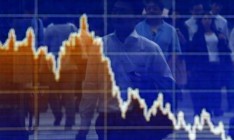Economy
prospectsUkrainian government is anticipating a fourth year of the economic recession

The economic recession that hit Ukraine in the second half of 2012 will not end this year or any time next year. The revival of economic activity may take more time than anticipated, meaning that GDP will continue to decline at least through the first half of 2015, economist of the Representative Office of the World Bank in Ukraine Anastasia Holovach forecast. According to her calculations, real GDP will decrease this year by 8%.
Things could be worse
Next year the long-awaited revival of the economy should not be expected – the economy will slide by another 1%. Two weeks ago the European Bank for Reconstruction and Development sharply lowered its forecast. According to its assessments, the decline will be 9% this year and 3% next year. The International Monetary Fund is also expected to review its forecast. Ukrainian economists agree with the pessimistic forecasts of the IMF.
According to the renewed quarterly forecast of Capital prepared based on surveys conducted among thirteen international organizations, domestic research centers, banks and investment companies, the decline of the economy in 2014 is forecast at 8.1% and in 2015 – 1.2%. Three months ago these organizations were much more optimistic anticipating the 4.6% decline would improve to a 2.2% growth in 2015.
What is most important is that the pessimistic forecasts of experts are totally opposite to the expectations of the government and cast doubt that the national budget plans for 2015 drafted by the Cabinet of Ministers are realistic. At the end of August, the growth of real GDP was between 0.3% and 2%. In both cases, the end of the military conflict in eastern regions of the country, resolution of problems with gas by the end of the year and continuation of cooperation with the IMF and the European Union are envisaged. The Cabinet of Ministers traditionally was more optimistic, said Finance Minister Oleksandr Shlapak. But even the anticipation of a 0.3% growth of GDP seems overly optimistic. This means that the national budget for 2015 will have to be recalculated now in the stage of its drafting or post-factum over the course of next year.
Germs of hope
“The economic recession in the forthcoming months will continue to deepen due to the instability in the industrial regions in the east,” noted Holovach. Revival of the economy will not happen sooner than the second half of 2015, foreign and domestic experts agree. Aside from the win-win comparison with the collapsing GDP in 2014, only export will ensure positive indicators. “If the situation in the east does not get worse next year and major enterprises gradually renew production, additional competitive advantages that appeared due to devaluation of the currency will foster the renewal of export,” says Holovach.
Those companies whose products are in high demand abroad will be the first to gain from a weak hryvnia. In particular, agrarians, whose grain harvests from July 2014 to June 2015 will fall by 3%, according to the forecasts of the U.S. Department of Agriculture (USDA), stand to gain.
At the same time, those industries that offered their commodities mainly on the Russian market, for example, in the engineering and output of animal husbandry sectors, will not so quickly manage to gain a price advantage. However, they will ensure economic growth in the second half of 2015. “Within half a year these companies will resolve the issue of reorienting export from the Russian market to previously uncharted markets,” Manager of the Analytical Department of Concord Capital Oleksandr Parashchiy presumes.
Revival of export will partially help revive industrial production, particularly in the Donbas region. “Large enterprises in these regions will try to revive their production capacity, though a return to the pre-war levels of output will not happen,” Manager of the Analytical Division at ICU Oleksandr Valchyshyn believes.
Moreover, industry experts do not expect a jump in production traditional for post-war economies due to revival of the infrastructure because the freezing of the conflict in the east of Ukraine is a serious obstacle to this. “The government will not allocate funds for revival of the infrastructure next year as there will not be full control over the territory,” presumes economist at the International Center for Policy Studies Oleksandr Zholud. In his opinion, even if Ukraine receives the promised EUR 500 mn loan from Germany for these purposes, these funds will not likely be used until control over the rebellious territory is fully re-established.







 of the agreement of syndication with Financial Times Limited are strictly prohibited. Use of materials which refers to France-Presse, Reuters, Interfax-Ukraine, Ukrainian News, UNIAN agencies is strictly prohibited. Materials marked
of the agreement of syndication with Financial Times Limited are strictly prohibited. Use of materials which refers to France-Presse, Reuters, Interfax-Ukraine, Ukrainian News, UNIAN agencies is strictly prohibited. Materials marked  are published as advertisements.
are published as advertisements.